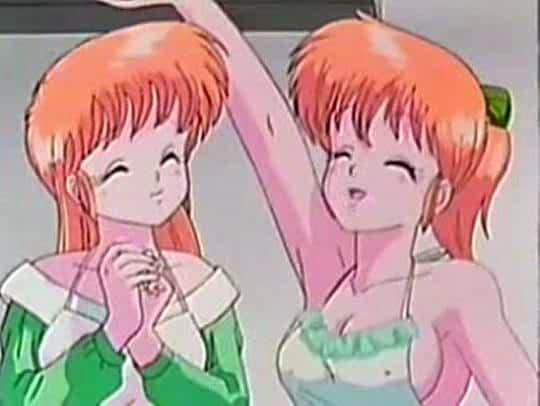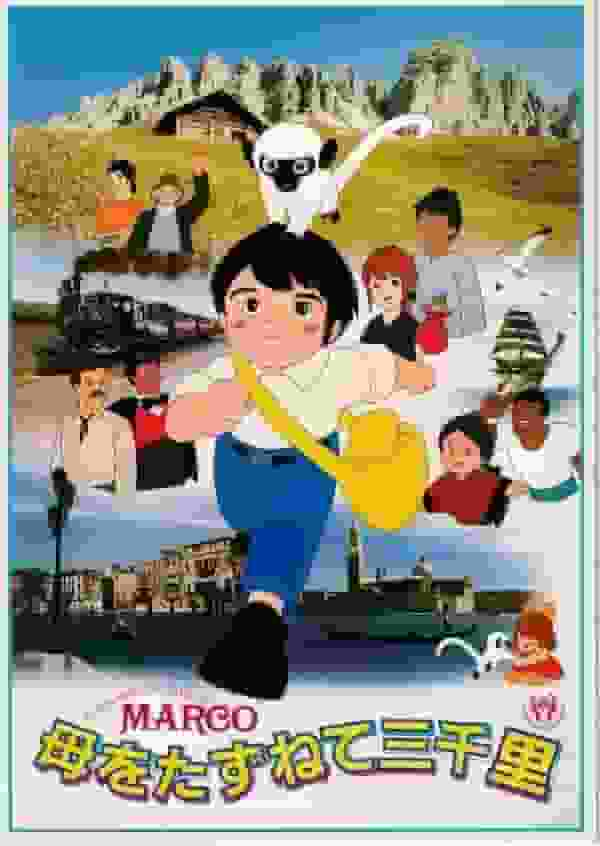"Zero's Discovery" Review: A moving story seen from a new perspective

"Zero no Hakken": An animated masterpiece that intersects history and educationThe 1963 animated film Zero is beloved by many to this day for its unique theme and educational value. Despite being a theatrical release, the film played an important role in teaching mathematics concepts to children. This article will explore the background, production process, and influence of the film in detail. It also provides recommendations and related information to help you get the most out of the film. Overview of the work"Zero no Hakken" is a 21-minute short animated film released in 1963. The original story was an anime, produced by Ogura Yusuke, and planned by Saitama Bank. It was directed by Tomizawa Yukio, Sugihara Setsuko, and Kuri Yoji, and produced by Kyodo Television. Yano Nobu was among the cast, and the main staff included screenwriters Onuma Tetsuro and Tomizawa Yukio, music by Matsumura Teizo, and sound by Ohno Matsuo and Ohashi Tetsuya. Background and purpose of production"Zero no Hakken" was produced as part of Saitama Bank's educational efforts. At the time, the importance of mathematics education was increasing, and there was a particular need to help children understand the concept of "zero." Saitama Bank aimed to convey the fun and importance of mathematics to children through this animation. In addition, thanks to the production capabilities of Kyodo Television and the cooperation of talented directors such as Yukio Tomizawa, Setsuko Sugihara, and Yoji Kuri, the work was completed with high quality. Story and ThemesThe story of "Zero no Hakken" is about the protagonist's adventure in the world of mathematics through a journey to explore the concept of "zero." The story depicts the protagonist's journey as he questions the existence of zero, visits various places, meets many people, and comes to understand the importance of zero. This work is not just a teaching material for mathematics, but can also be enjoyed as a story of adventure and discovery. The theme of the work is the power to create something from nothing and infinite possibilities through the concept of "zero." The work also aims to inspire children's desire to learn by conveying the beauty and logic of mathematics. This theme is consistent throughout the work, providing viewers with deep inspiration and learning experiences. Production process and techniquesThe production of "Zero no Hakken" was carried out with the cooperation of the staff at Kyodo Television. Directors Yukio Tomizawa, Setsuko Sugihara, and Yoji Kuri used their respective areas of expertise to construct the work's visuals and story. In particular, Yukio Tomizawa's directing skills and Setsuko Sugihara's character designs were key elements in enhancing the work's appeal. Yoji Kuri's unique perspective also gave the work freshness and depth. The screenplay was written by Tetsuro Onuma and Yukio Tomizawa, and the story is full of ingenuity in conveying mathematical concepts in an easy-to-understand way. The music was composed by Teizo Matsumura, and played an important role in enhancing the atmosphere of the story. The sound effects were recorded by Matsuo Ohno and Tetsuya Ohashi, and are also an element that enhances the story's appeal. Influence and Evaluation of the Work"Zero No Hakken" was highly praised when it was released and was loved by many children. In particular, in the field of mathematics education, the show was said to be effective in increasing children's motivation to learn, and it was recommended that the show be shown at school and at home. The theme and story of the show also deeply moved viewers, providing an opportunity for them to reaffirm the beauty and importance of mathematics. The film was highly praised not only for its educational value, but also for its artistic merit as an animation. The talents of directors Yukio Tomizawa, Setsuko Sugihara, and Yoji Kuri, combined with the production skills of Kyodo Television, resulted in a visually stunning film with a compelling story. This has earned Zero an important place in the history of animation films. Recommended points and related informationWhen watching "Zero no Hakken," paying attention to the following points will help you to understand the appeal of the work more deeply.
The following works and materials may also be useful as related information:
Conclusion"Zero no Hakken" is a 21-minute short animated film released in 1963 that continues to be loved by many people to this day for its unique theme and educational value. The film was produced as part of Saitama Bank's educational initiative, aiming to help children understand the concept of "zero". Thanks to the production capabilities of Kyodo Television and the cooperation of talented directors such as Yukio Tomizawa, Setsuko Sugihara, and Yoji Kuri, the film was completed with high quality. The story is about the protagonist's adventure in the world of mathematics as he journeys to explore the concept of "zero." The theme of the work is the power to create something from nothing and the infinite possibilities that can be expressed through the concept of "zero." It also aims to inspire children's desire to learn by conveying the beauty and logic of mathematics. This theme is consistent throughout the entire work, providing viewers with deep inspiration and learning experiences. During the production process, the visuals and story of the work were developed with the cooperation of the staff at Kyodo Television. In particular, Tomizawa Yukio's directing skills and Sugihara Setsuko's character designs are important elements that enhance the appeal of the work. Kuri Yoji's unique perspective also gave the work freshness and depth. The script was written by Onuma Tetsuro and Tomizawa Yukio, and there are many ingenious efforts to convey mathematical concepts in an easy-to-understand way. Matsumura Teizo was in charge of the music, which played an important role in enhancing the atmosphere of the work. The sound effects were recorded by Ohno Matsuo and Ohashi Tetsuya, and are also elements that enhance the appeal of the work. "Zero no Hakken" was highly praised when it was released, and was loved by many children. In particular, in the field of mathematics education, the film was said to be effective in increasing children's motivation to learn, and it was recommended that it be viewed at school and at home. The film's theme and story also deeply moved viewers, providing an opportunity to reaffirm the beauty and importance of mathematics. The film was highly praised not only for its educational value, but also for its artistic merit as an animation. The talents of directors Yukio Tomizawa, Setsuko Sugihara, and Yoji Kuri, combined with the production capabilities of Kyodo Television, resulted in a work that is visually beautiful and has a fascinating story. This has earned "Zero no Hakken" an important place in the history of animation films. When watching, you can gain a deeper understanding of the appeal of the work by paying attention to the understanding of mathematical concepts, visuals and music, and the depth of the theme. In addition, other works by Yusuke Ogura, the educational activities of Saitama Bank, and other works by Yukio Tomizawa, Setsuko Sugihara, and Yoji Kuri are also useful references for related information. By using this information while watching "Zero no Hakken," you can gain a deeper understanding of the background and production process of the work, enriching your viewing experience. |
<<: The appeal and evaluation of "Gauche the Cellist": moving music and story
>>: The appeal and evaluation of "Space Boy Tonder": A must-read review for anime fans
Recommend
The first horror blockbuster of this summer, "A Quiet Place: Day of Invasion", is released today. Come to the theater to cool down and get scared
The summer "heart-breaking" thriller &q...
To mark the 60th anniversary of the James Bond film series, several classic Bond cars are being auctioned off for charity
September 28th will be the 60th anniversary of th...
A thorough analysis of the appeal of the story of Saiunkoku! Delivered in a special guest talk
The appeal and evaluation of the Saiunkoku Monoga...
The Lord of the Rings TV series does not intend to compete with the Lord of the Rings movies and Game of Thrones
Recently, Patrick McKay, the producer of "Th...
The appeal and evaluation of the unaired episodes of "Dropkick on My Devil": Exploring a new side of the series
The charm of the unaired episodes of "Dropki...
Super powerful popular science "Dragon Ball" Frieza's initial combat power of 530,000 is so amazing
The classic comic masterpiece "Dragon Ball&q...
The appeal and reviews of "The King of Braves GaoGaiGar FINAL": A must-see anime experience
King of Braves Gaogaigar FINAL - King of Braves G...
Galienta: The latest work's appeal and evaluation
Panzer World Galiente ■ Public Media TV anime ser...
The appeal and reviews of "Legend of Mana -The Teardrop Crystal-": A thorough analysis of the moving story and beautiful graphics
The appeal and evaluation of "Legend of Mana...
Trailer and stills of the movie "Green Snake: The Front Line" Gillian plays the role of Green Snake with temperament
Today (March 30), the online movie "Green Sn...
The second season of the TV animation "Re:Zero" is confirmed to be broadcast on October 3, and the latest art images are released
The official announcement of the new TV animation...
Wu Jing's "The Climber" summit poster released: Born fearless and brave to climb to the top
Today (September 9), the official website of The ...
Ghost Blows Out the Light "Yunnan Worm Valley" horror new poster insect monster explodes
Today (September 6), the online drama "Yunna...
The official Weibo account of the movie "The Journey of Bell Buds" has been launched, and it is suspected that it will be officially introduced to China
The official Weibo account of Makoto Shinkai'...
The new theatrical animation of the new multi-idol series "Tokyo Seven Sisters" is released and will be released in the summer of 2020
The new theatrical animation "Tokyo Seven Si...









